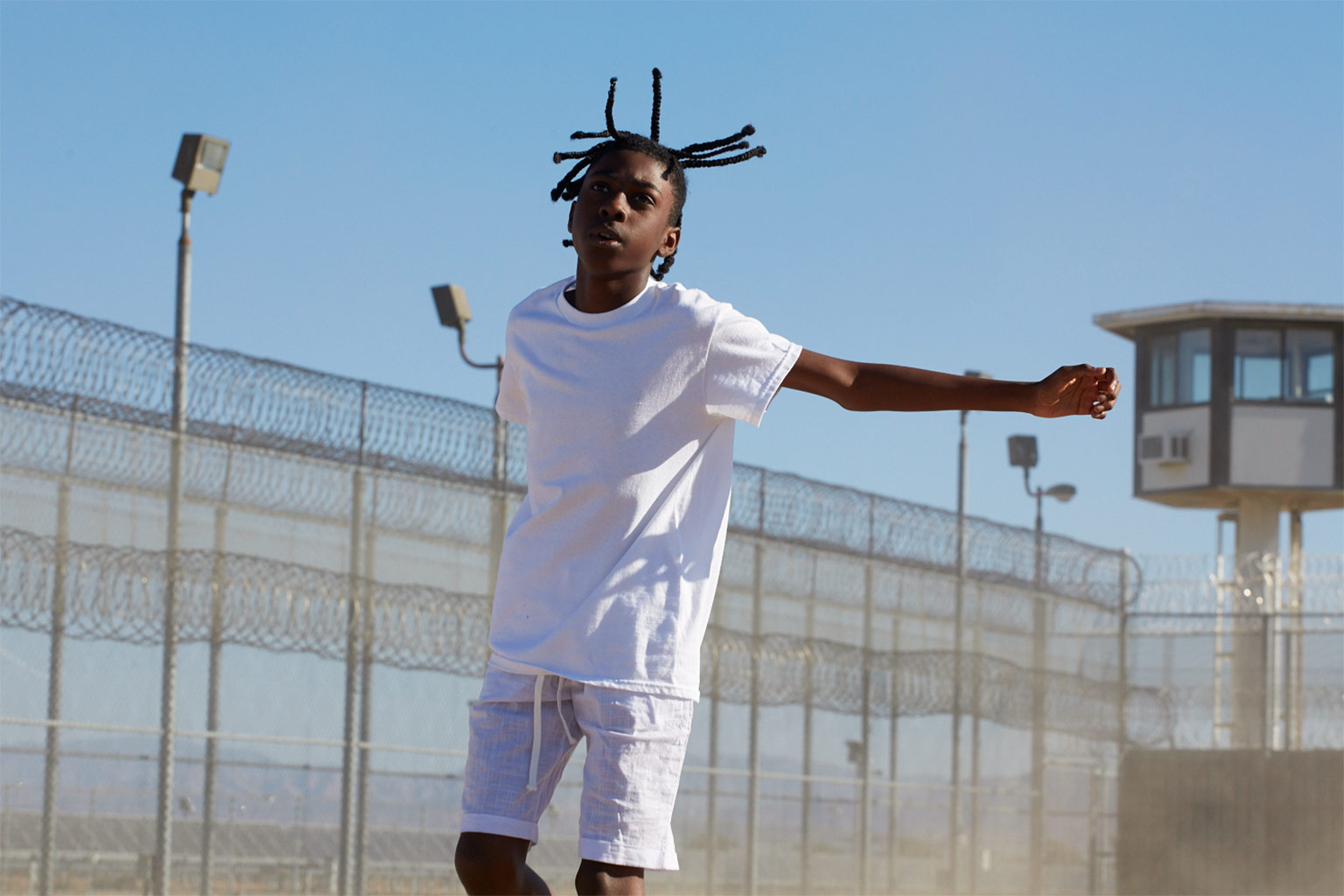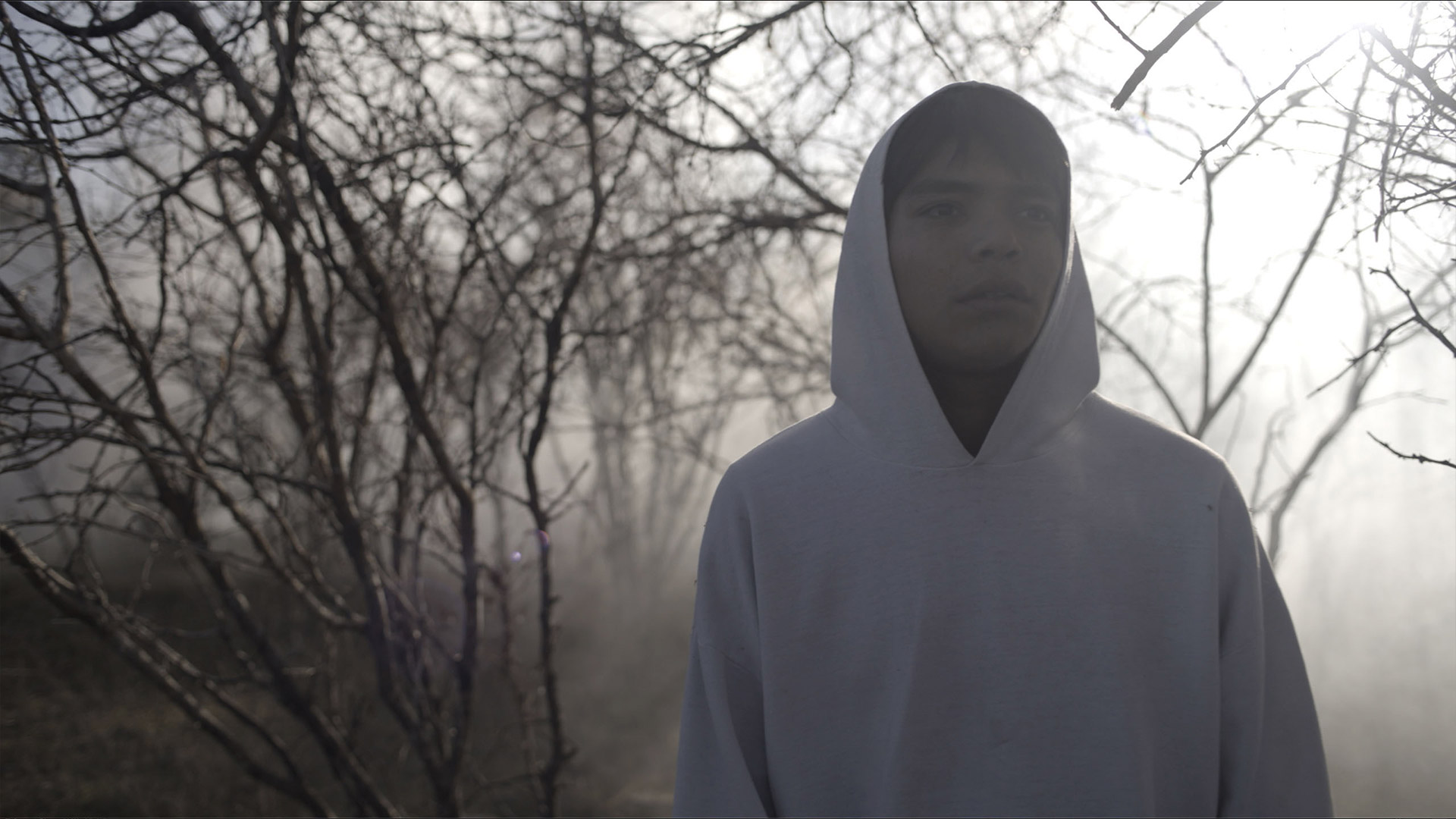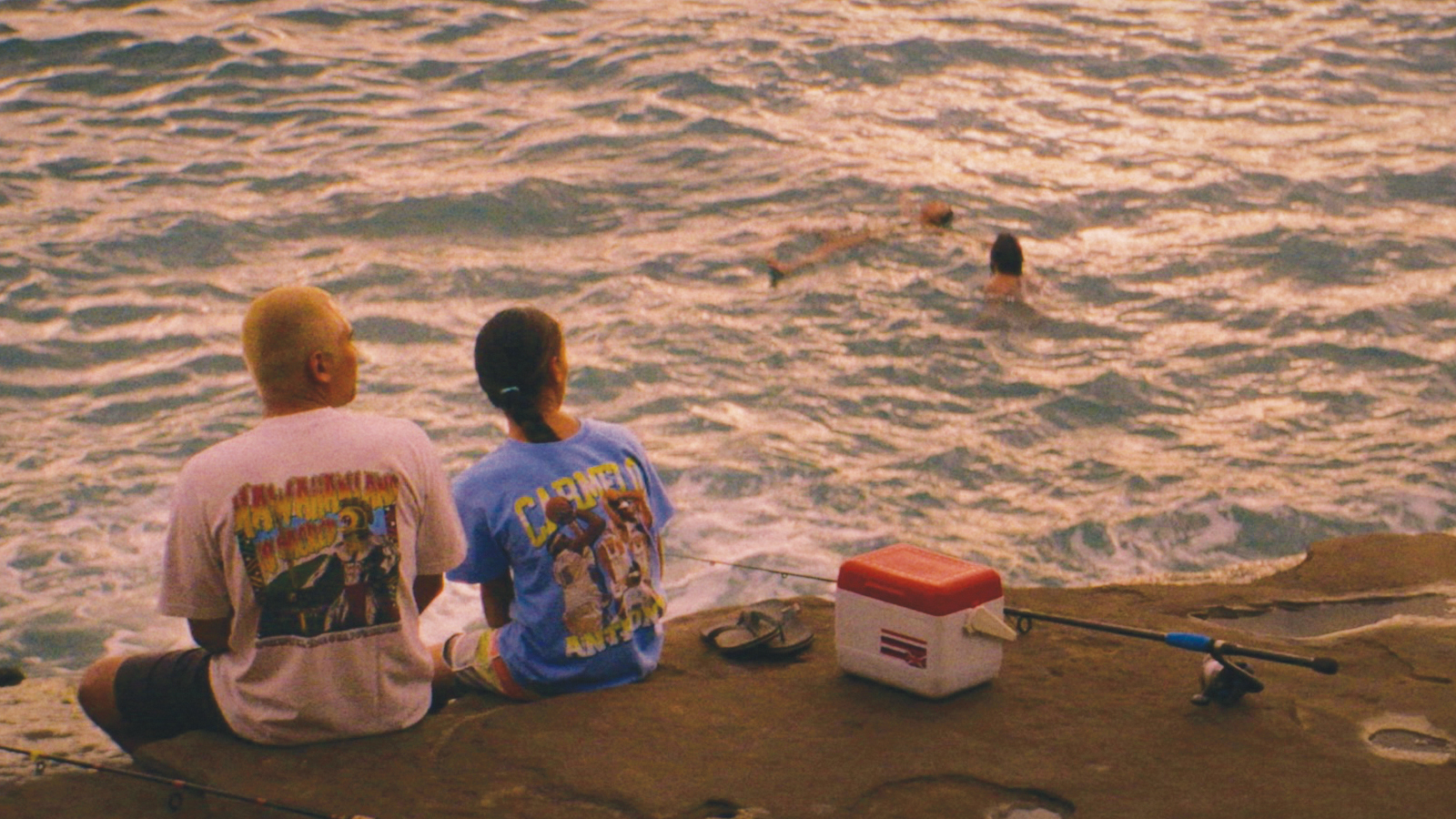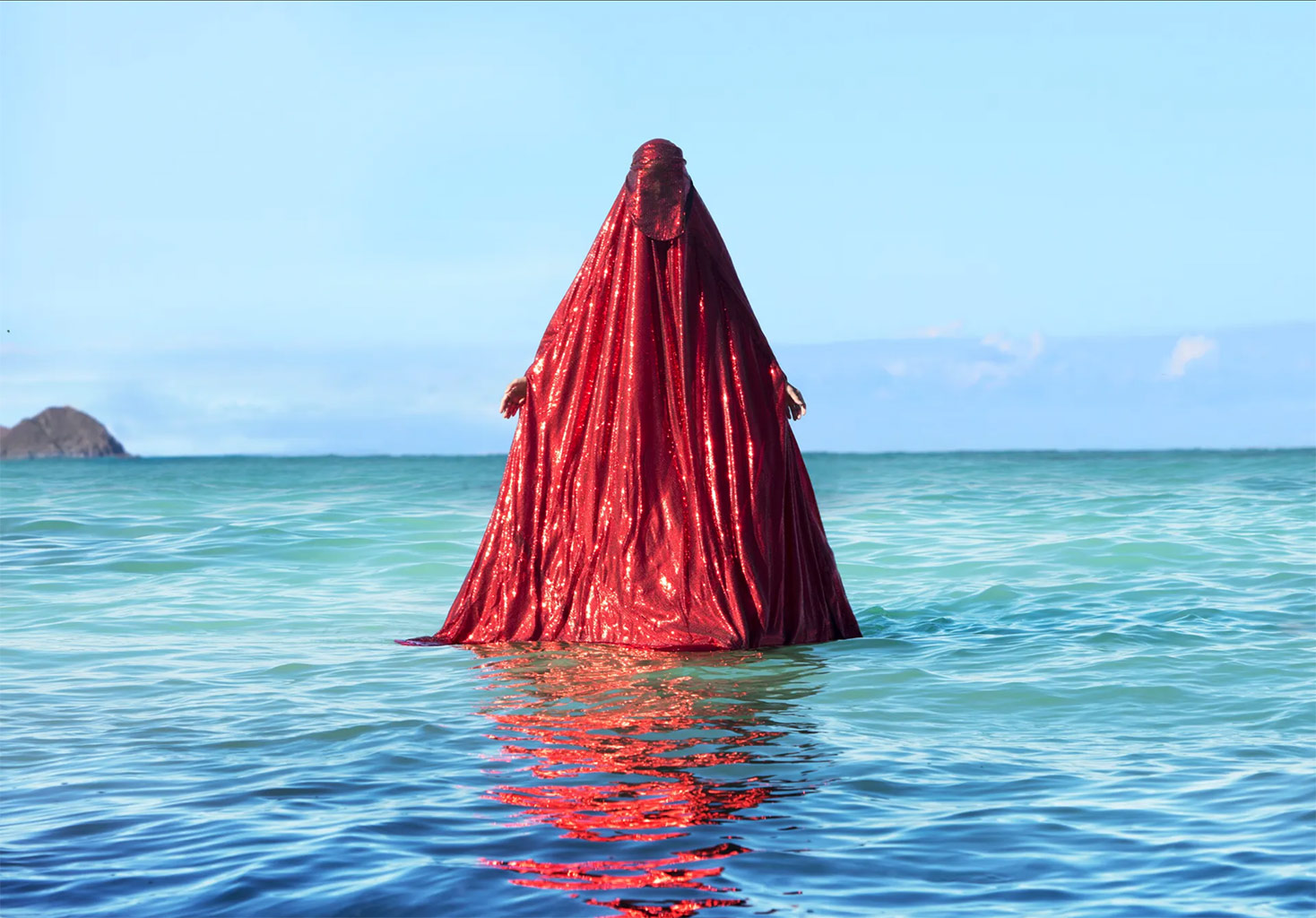
A Compelling Visual Album
Songs from the Hole details the double-life prison sentence of James “JJ’88” Jacobs – who was incarcerated for murder in 2004, when he was only 15 and involved with gangs – as his family spends years fighting for a lighter re-sentencing. Originally conceptualized as a screenplay Jacobs wrote while incarcerated, Songs from the Hole displays the highs and lows of Jacobs’ life as he struggles to adapt and grow up while in prison.
Self-described as a “visual album,” Songs from the Hole features an array of stylized choices, ranging from musical vignettes to animation, which blur the lines of a coming-of-age family saga with documentary and narrative components. This is exemplified in the opening shots of the film, which is a fantastical reenactment of sorts: the audience lays eyes on 15-year-old Jacobs dancing in a prison yard while a watchtower looms over him. The young actor playing Jacobs is wide-eyed and beams a smile despite the harsh environment he finds himself in, thus establishing the tone for the film, which is able to balance harrowing, heart-breaking moments with joyous and uplifting ones. Gayles carefully shows the audience every facet of Jacobs’ life, including family anecdotes which tug on the heartstrings.
A monumental turning point in Jacobs’ sentence occurs when he discovers his passion for writing, rapping, and performing music. Music is prevalent throughout Songs from the Hole, and every track is performed by Jacobs himself, with vocals secretly recorded in prison by fellow musician and producer richie reseda [sic]. As Jacobs states in the film, “I have to manufacture hope, and the way I manufacture hope is through music.”
Each song in the film correlates to events that Jacobs underwent while in prison, with Gayles dramatizing the events. In one instance, Jacobs retells how the tracks came to be created through a lengthy stint in solitary confinement – also known as “the hole.” Once he decided to make the best of an uncomfortable experience, he laid on the ground and entered a meditation, after which artistic ideas began to flow through him.
The finished songs exhibit the physical and emotional journey that Jacobs underwent in prison, unapologetically showcasing his anger, regret, determination, and hope. Healing is a long road, and the effects of imprisonment don’t only impact the individual, but their loved ones as well. Using talking heads interviews and vérité footage, Songs from the Hole shows how Jacobs’ family deals with his sentence, their fight to reduce his sentence, and the barriers they face to overturn it.
This makes it much more heartbreaking when, towards the latter half of the film, Jacobs’ music ends up becoming an obstacle to attaining his freedom, when the parole board deems everything he does “an act.” They do not believe Jacobs’ good behavior to be a sincere reflection of his character and rehabilitation, partly due to his guest spot on another musician’s project, which contains negative views about law enforcement.
Recognizing the Humanity of Incarcerated Individuals
“People who are incarcerated are people attached to other people,” Jacobs commented in a post-screening Q&A at the Seattle Black Film Festival, where both he and reseda [sic] emphasized the importance of recognizing the humanity of incarcerated individuals. “It is real lives that are engaged, and not just the person in the cage. My father did 18 years with me; my mother did 18 years with me.”
After learning that he was denied a re-sentencing, Jacobs tearfully calls his father. His ricocheting cries are heard as he breaks down over the phone, unsure what more he needs to do to prove his growth as a human being. Opposite him, William Jacobs’ father attempts to be strong and reassuring, but his anguish is palpable. The scene is harrowing, showing how the industrial prison complex hinders accountability and instead perpetuates harm by prioritizing punishment over restorative justice.
“When we think about public safety and justice… [when] you think about people who are incarcerated and think maybe they need that, just think about that: you’re saying maybe a person needs that pain and suffering, that a human being needs to suffer,” said Jacobs in the post-screening Q&A. “People are being incarcerated. Human beings. I hope people walk away from here seeing our humanity.”
In such a way, Songs from the Hole maintains a large degree of optimism, despite its heavy setting and content. In the post-screening Q&A at SBFF, Jacobs spoke about how joy is a vital emotion that is crucial in the struggle to fight for justice and prison reform, and in his own journey throughout the film.
“A Black boy and his joy is a powerful thing,” he stated. “As my dad said in the film, we can grieve now, we can cry now, but we can’t give up, and joy is what’s motivating me from not giving up. It keeps me from giving up.”
At its best, the prison system is supposed to safeguard inmates’ well-being and assist in their rehabilitation. More often than not, they do the opposite – instead becoming another obstacle as prisoners try to redeem themselves and grow. Jacobs’ music is a powerful demonstration of how art can heal. It is a roadmap of his transformation while in prison.
Ω






